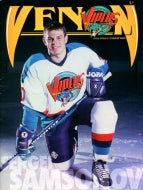The Detroit Vipers: Motown's Almost Forgotten Championship Hockey Team
As one of America’s largest metro areas and its designation as Hockeytown, it’s not surprising that for seven years Detroit had two pro hockey teams. The Red Wings of the National Hockey League (NHL), founded in 1926 (as the Cougars), had long been a Motor City institution when a new team arrived in the area in 1994.
Playing in the International League Hockey League (IHL), one tier below the NHL, the newcomers came from Salt Lake City. Formerly the Golden Eagles, the team was founded in 1969. In 1994, they were sold to Palace Sports and Entertainment, who not only owned the Palace of Auburn Hills sports arena but also the building’s primary tenant, the Detroit Pistons.
Car-related nickname
The team’s new nickname seemed somewhat random at first glance but was actually quite appropriate for a team representing the Motor City. Thanks to a sponsorship deal with the Detroit-based Chrysler corporation, the name Vipers, as in the Dodge Viper sports car, was chosen. The Pistons’ and Vipers’ arena-mates, the Detroit Neon of the Continental Indoor Soccer League, had a similar deal, later sharing their name with another Chrysler product, the Safari.
Apart from several junior-level squads, the Vipers were the area’s first attempt at a second pro hockey team since the ill-fated Michigan Stags in 1974. That team, formerly the Los Angeles Sharks, lasted only half a season before moving to Baltimore in January 1975. Before heading east, the Stags played in Cobo Hall, while the established Wings played at the much older Olympia Stadium. The Red Wings weren’t very competitive, while the Stags were abysmal.
Hockey-mad Hockeytown
The 1990s were a much different time for hockey in Motown, though. The Red Wings were very successful on the ice and at the gate. Crowds of over 19,000 packed Joe Louis Arena downtown and watched the team win the Stanley Cup in 1997 and 1998.
The area was hockey mad, and the Vipers, playing out in the suburbs, took advantage, pulling in over 14,000 fans a game in their first season. Helping move the turnstiles was a championship run and, more importantly, an NHL lockout that kept the Red Wings off the ice for 34 games. The Vipers won their division that first season and won it again in 1997, 1998, and 1999, winning the Turner Cup, the IHL’s championship trophy, in 1997. Indeed, Metro Detroit was home to two championship hockey teams in 1997.
First class operation
As part of Palace Entertainment Sports and Entertainment, the Vipers not only enjoyed the use of a first-class arena but often used the Pistons’ charter plane to fly to away games. It seemed like Metro Detroit would be a two-team hockey town for years to come. However, several factors contributed to the demise of both the Vipers and the International Hockey League.
In 1999, the team became a farm club of the NHL’s struggling Tampa Bay Lightning, also owned by Palace Sports. Several of Detroit’s top players were sent south, leaving the Vipers a shell of the team that won the Turner Cup in 1997. The league meanwhile, had overextended itself through the 1990s as it grew from a primarily Midwestern circuit to a league with a national footprint. The result was a sea of red ink.
In 2001, the IHL ceased operations. Six teams moved to the American Hockey League, but Detroit was not one of them. A last-place finish in their final season and plummeting attendance spelled the end of the Vipers and Metro Detroit’s time as a two-hockey-team town.


